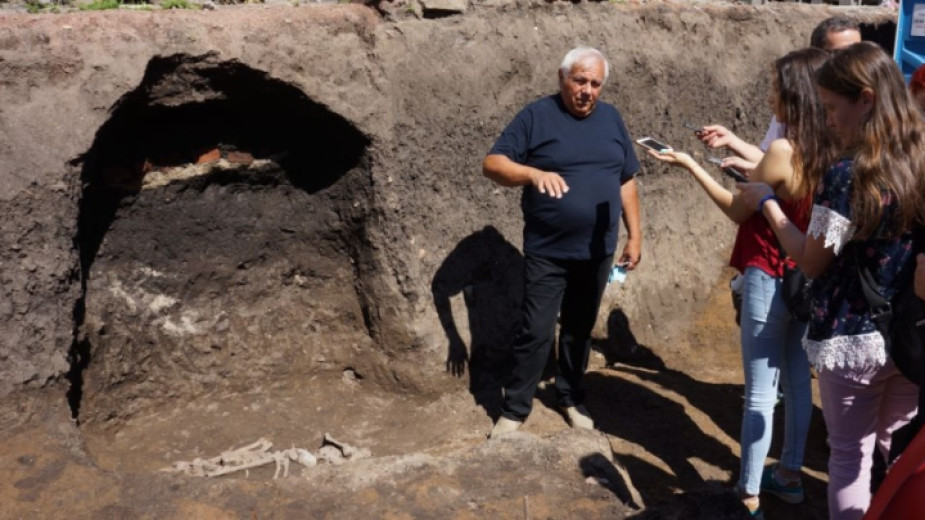
These are the earliest discovered graves in Sofia and the Sofia plain. The settlement existed for about 500 years, from the end of the 7th to the middle of the 6th millennium BC and was established by settlers from Asia Minor. Laboratory and DNA analysis of the findings at the Institute of Anthropology is forthcoming.
One of the graves is double with a man next to a child. The other remains are of a woman lying on her stomach and a man in an embryonic position, the scientist commented.
On 20 April, all Christians will celebrate the Resurrection of Christ. Against the backdrop of our divided and troubled world, Catholics, together with Orthodox Christians, Armenians and Protestants, will send a message of hope and share the joy of the..
Holy Saturday services begin on Friday evening with Vespers. The Church commemorates the burial of Christ the Saviour and His descent into hell to save the righteous who had died before His work of redemption. Joseph of Arimathea and Nicodemus, with..
On Good Friday, the saddest day for Christians, the liturgy commemorates the suffering, crucifixion and death of Jesus Christ, who sacrificed himself for the guilt and sins of humanity. The service at the Metropolitan Cathedral "St. Nedelya" in..

+359 2 9336 661
